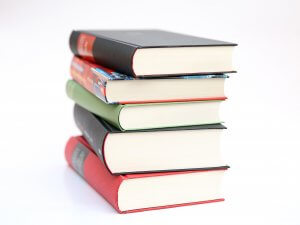 In an article published just last month, Hillsdale College’s E. J. Hutchinson discusses William Hazlitt’s great essay “On Reading Old Books.” As Hutchinson points out, many Christians are familiar with C. S. Lewis’ “On the Reading of Old Books” (and those who aren’t should be). But although the titles are similar, the two writers each take a different approach:
In an article published just last month, Hillsdale College’s E. J. Hutchinson discusses William Hazlitt’s great essay “On Reading Old Books.” As Hutchinson points out, many Christians are familiar with C. S. Lewis’ “On the Reading of Old Books” (and those who aren’t should be). But although the titles are similar, the two writers each take a different approach:
Where Lewis focuses on the dangers of contemporary prejudice and the atmospheric contamination, as it were, of false assumptions—both of which we can mitigate in effect by temporarily displacing ourselves in time and space through reading—Hazlitt stresses the importance of older writers. He does this because (1) there is a greater likelihood that they are worth reading; (2) they are essential to the personal development of the individual; and (3) they are high-water marks of formal and stylistic virtuosity from which something can be learned despite philosophical disagreement.
In reflecting on Hazlitt’s essay, Hutchinson says something that applies to each of us as thinking human beings, but something that is even more important for Christian educators to hear:
What Hazlitt is really driving at, it seems to me, is the obligation of the thinking individual to form a personal canon of favorite authors and texts. Just as we differ as individuals, our personal canons will differ. But we should all nevertheless have one, and not take anyone else’s word for it. It is to be made, not borrowed.
Do we as educators have a “personal canon”? A short list of books that we have found particularly helpful in the living of our lives? Undoubtedly the Bible would occupy pride of place for most, if not all, of us. But what other books have we found that flesh out the teachings of Holy Writ? What three, four, or five books would we list as those books that have most influenced the way we think and act?
There are a number of books that have shaped the way I think and live. Reducing them to a small number is hard, but I’ll give my list, my personal canon, the books that have had the greatest influence on me (apart from the Bible):
- Orthodoxy, by G.K. Chesterton
- Anna Karenina, by Leo Tolstoy
- The Violent Bear it Away, by Flannery O’Connor
- The Meaning of Shakespeare, by Harold Goddard
- Time of Need, by William Barrett
These are just five of them, in no particular order. They are books I go back to again and again for wisdom and insight. I could list twenty more. I have been a teacher, and am mostly now a writer, and most of what I write has to do with education. My list will be different from that of others. Each of us has different goals, interests, and aspirations, and different books will be relevant to each of us. Without it, how can we know who we are?
What’s on your list?
